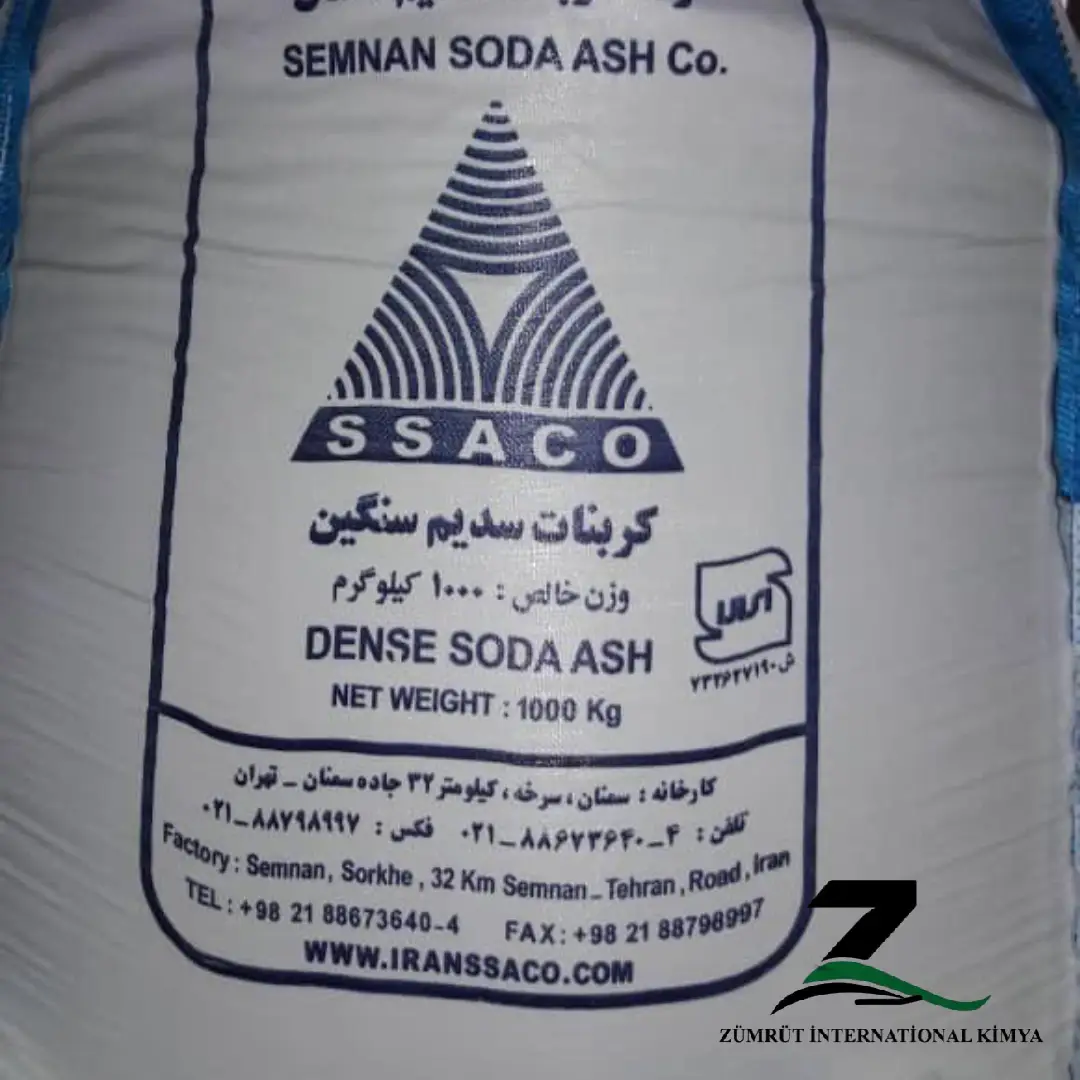
What is sodium carbonate (SODA ASH)?
Dense sodium carbonate (soda ash) is a high-purity form of sodium carbonate (Na2CO3) with a higher bulk density compared to light soda ash. It is preferred in industrial applications due to its superior handling and transportation properties.
Why is dense sodium carbonate (soda ash) important in glass manufacturing?
Dense sodium carbonate acts as a flux, lowering the melting temperature of silica (SiO2) in the glass-making process. This makes the production process more energy-efficient and cost-effective.
How much dense soda ash is typically used in glass production?
The amount of dense soda ash used varies depending on the type of glass being produced, but it generally constitutes about 12-15% of the raw material batch.
What types of glass products are made using dense soda ash?
Dense soda ash is used in the production of various glass products, including flat glass (windows), container glass (bottles and jars), and fiberglass.
Is there a difference between the use of dense and light sodium carbonate (soda ash) in glass production?
Yes, dense soda ash is preferred for glass manufacturing due to its higher bulk density, which reduces dust and improves material handling and transportation efficiency.
How does dense sodium carbonate (soda ash) affect the chemical composition of glass?
Dense soda ash provides sodium ions (Na+) that replace some of the calcium ions (Ca2+) in the silica network, reducing the melting point of the mixture and modifying the glass’s properties, such as its viscosity and durability.
The use of dense soda ash can reduce the overall energy consumption in glass production due to its fluxing properties. However, soda ash production itself can have environmental impacts, including CO2 emissions. The industry is working on more sustainable methods to produce soda ash and reduce its environmental footprint.
Higher purity dense soda ash results in fewer impurities in the final glass product, leading to improved clarity, strength, and overall quality. Impurities in soda ash can cause defects and reduce the performance of the glass.
What are the storage requirements for dense soda ash in a glass manufacturing facility?
Dense soda ash should be stored in a dry, covered area to prevent it from absorbing moisture, which can cause caking. Proper storage also helps in maintaining its flowability and handling efficiency.
What are the storage requirements for dense soda ash in a glass manufacturing facility?
Dense soda ash should be stored in a dry, covered area to prevent it from absorbing moisture, which can cause caking. Proper storage also helps in maintaining its flowability and handling efficiency.
dense soda ash is versatile and can be used in various types of glass manufacturing, including flat glass, container glass, and specialty glasses like borosilicate and lead glass.
How does dense soda ash contribute to the environmental sustainability of the glass industry?
Dense soda ash contributes to environmental sustainability by enabling lower energy consumption in the glass melting process, which reduces greenhouse gas emissions. Additionally, it supports the recycling of glass, which conserves natural resources and minimizes waste.
Are there any alternative materials to dense soda ash for glass production, and how do they compare?
Alternatives to dense soda ash include light soda ash, potash (potassium carbonate), and cullet (recycled glass). While these materials can be used, dense soda ash is preferred for its superior handling properties, lower cost, and effectiveness as a flux.
These additional questions provide a deeper understanding of the complexities and considerations involved in using dense soda ash in the glass industry.
What is the difference between soda ash and baking soda?
Soda ash (sodium carbonate, Na2CO3) and baking soda (sodium bicarbonate, NaHCO3) are chemically related but have different properties and uses. Soda ash is used primarily in industrial applications, while baking soda is used mainly for baking and as a household cleaning agent.
Dense soda ash helps to create a stable glass matrix, enhancing the chemical durability and resistance of glass to water and environmental factors.
What is the role of dense soda ash in the production of float glass?
In float glass production, dense soda ash acts as a flux, lowering the melting point of silica and helping to produce a smooth, uniform glass surface by floating molten glass on a bed of molten tin.
How does the thermal conductivity of glass change with the use of dense sodium carbonate (soda ash)?
The use of dense soda ash in the glass composition can affect the thermal conductivity by altering the glass network structure, although the change is usually minimal and depends on the specific glass formulation.

How does dense sodium carbonate (soda ash) contribute to the mechanical strength of glass?
Dense sodium carbonate, commonly known as soda ash, plays a crucial role in glass manufacturing by lowering the melting point of silica, the primary component of glass. This reduction in melting point facilitates easier processing and molding of the glass. Specifically, soda ash:
- Lowers Melting Point : Reducing the melting temperature of silica decreases energy consumption during the production process.
- Improves Workability : It enhances the fluidity of the molten glass, making it easier to shape and form into various products.
- Increases Durability : When combined with other ingredients like lime (calcium oxide), soda ash helps produce a stable glass structure that is resistant to water and environmental degradation.


